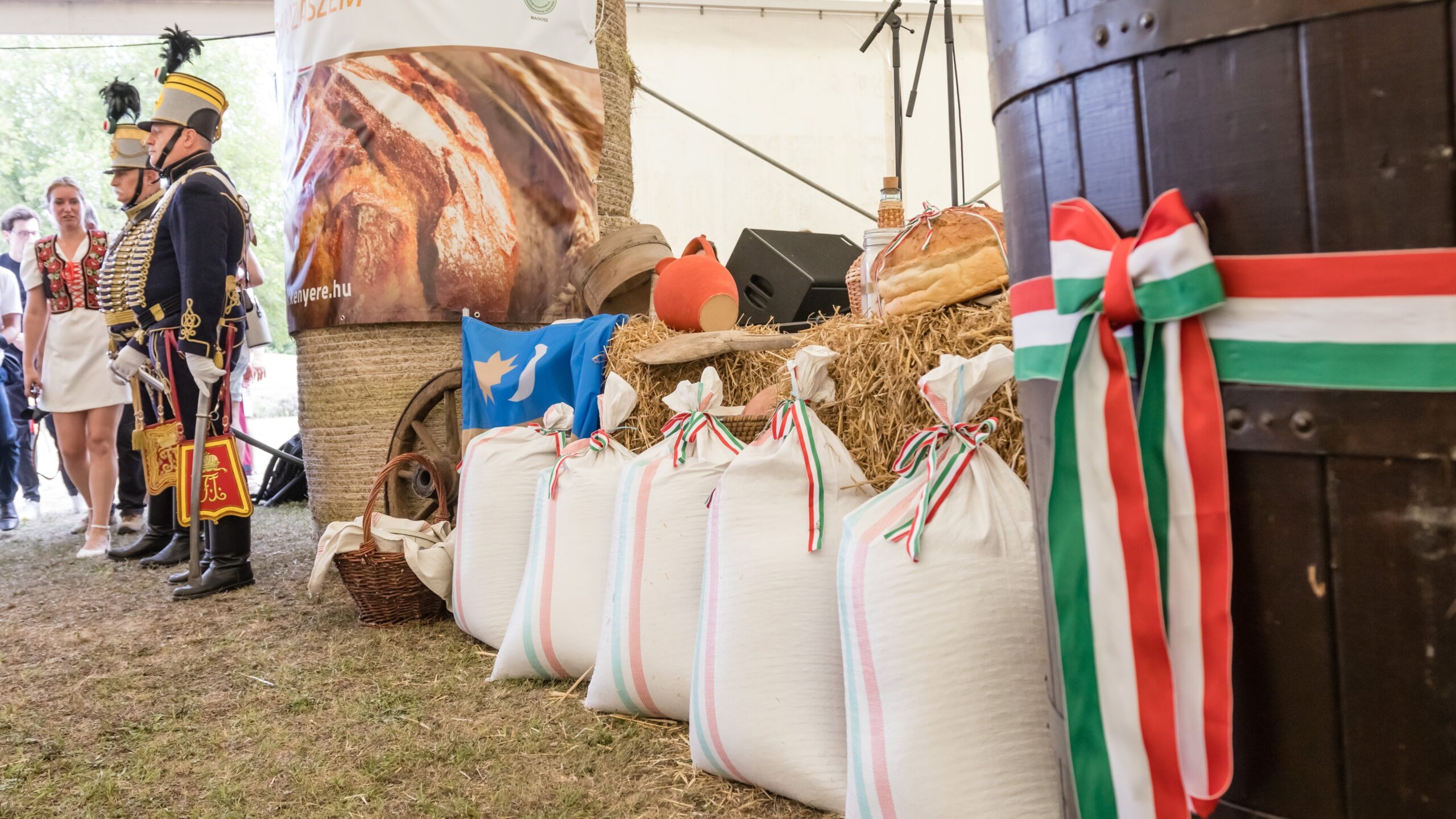Hungary continues to require a strong agricultural sector in the 21st century, as well as the invaluable role that rural communities and villages have played, and still play, in the life of the nation, said the Minister of the Prime Minister’s Office, Gergely Gulyás, on Thursday in Somogyvár, Somogy County.
Speaking at the Carpathian Basin wheat-collecting ceremony of the ‘Bread of Hungarians – 15 Million Grains of Wheat’ programme, Gulyás highlighted that agriculture contributes more than 5 per cent of Hungary’s total gross domestic product. He stressed that the survival, growth, and long-term future of rural areas in Hungary continue to depend primarily on agriculture. Hungary is among the countries that can not only feed its own population but also provide food for an additional population equivalent to that of Hungary. This, he stated, demonstrates the strength and value of Hungary’s agriculture, despite various challenges. Addressing the audience at the Saint Ladislaus National Memorial Site, among the ruins of the Saint Giles Benedictine Abbey, he emphasized that in times when peace and security face more threats than a few years or decades ago, the value of what we can produce ourselves becomes particularly significant. Gulyás described Hungarian-grown wheat as a unique asset and emphasized that farming is not a short-term activity; cultivating the land requires a long-term perspective spanning decades. He noted that one of the most crucial questions for Hungary’s present and future is whether there will be a new generation of farmers—those who will take over from the current generation shouldering the burden of agriculture and who will commit to maintaining the countryside and the nation.
Agriculture Minister István Nagy underscored that the wheat-collecting ceremony symbolizes unity, loyalty, respect for culture and historical traditions, and the values that make a nation strong. He expressed his gratitude to the participants of the Bread of Hungarians programme, including the farmers of the Carpathian Basin who donated wheat, the Federation of Hungarian Farmers and Cooperatives, the National Chamber of Agriculture, the Bread of Hungarians Foundation, NAK Bread of Hungarians non-profit company, representatives of foreign farming organizations, and the village managers of the Carpathian Basin.
‘This programme is an example of cooperation, solidarity, and support for those in need.
It embodies everything that lives in the heart of the Hungarian people: faith, love for our culture, respect for traditions, selfless willingness to help, and immense goodwill. Every year, it reminds us that we are not alone and can rely on each other,’ István Nagy said. He also remarked on this year’s wheat harvest in Hungary, declaring that the wheat needed for ‘our daily bread’ has been successfully harvested and is securely available.
Csaba Borboly, a county council president of RMDSZ, stressed that wheat, as a symbol of life, connects us. Through the Bread of Hungarians programme we not only honour the farmers’ work and the value of the harvest but also celebrate the strength of the community—a strength that is increasingly needed. He expressed that power in Europe still lies in the hands of pro-migration and pro-war forces who seek to break down Hungary’s resistance as long as they still have the strength. He suggested that it seems as though Hungary and the Hungarian people are under siege, but they must hold on until the forces supporting migration, gender ideology, and war are deprived of their influence.
Tímea Antal, president of the Hungarian Heritage Foundation of Southern California, stated that for those living in the diaspora, occasions that serve to protect and sustain the Hungarian language are festive events. ‘Our mother tongue carries our culture, and our soul is expressed through our culture. It is the task of each of us in the diaspora to strengthen our national identity, preserve our traditions, and inspire interest in deepening our understanding of our roots,’ she said.
Related articles:








